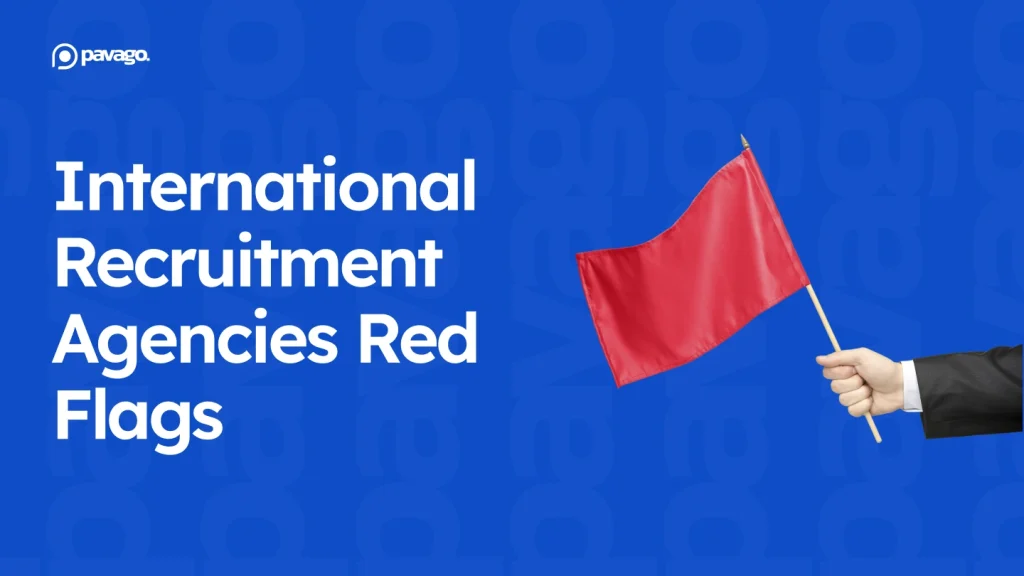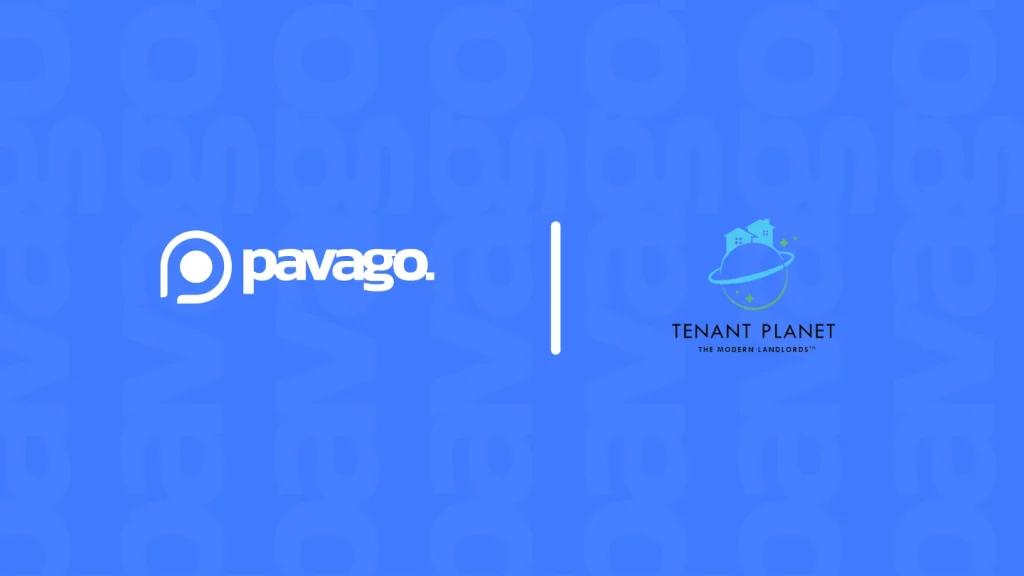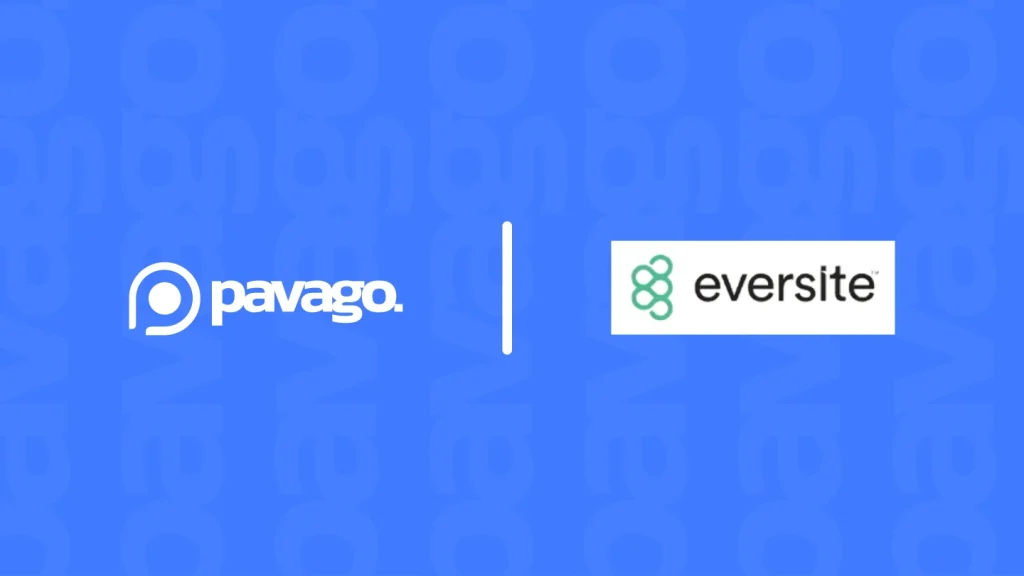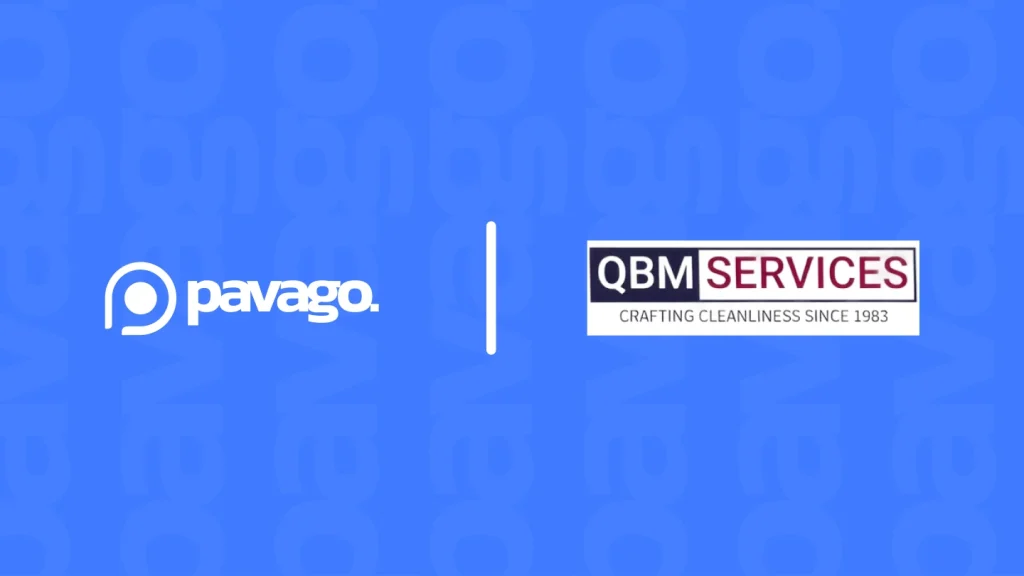So you’ve decided to hire internationally. Smart move.
You get access to global talent, save money, and keep things running 24/7. You’ve probably even got a few agencies on your shortlist and started talking to them.
But here’s what most founders don’t find out until it’s too late: a lot of these international recruitment agencies look legit on the surface but are really set up to squeeze you for fees while giving you as little as possible in return.
They know founders are eager to scale, tight on budget, and usually new to the whole overseas hiring game, and they take full advantage of that.
This isn’t about minor hiccups or annoying delays. We’re talking about fundamental problems that can burn tens of thousands in fees, waste months of time, and wreck your scaling timeline – not just by weeks, but by whole quarters.
If you’re looking at agencies right now to hire international employees, here are the red flags that separate the real partners from the expensive mistakes:

Red Flags to Watch for When Evaluating International Recruitment Agencies
1. Sky-High Placement Fees
Most agencies charge 20–30% of a candidate’s first-year salary as a one-time fee. For a $50k role, that’s $15,000 upfront – before your new hire has done any work.
For startups, this is brutal: you’re basically paying 3 or 4 months of salary upfront, and if the hire fails in the first 90 days (which happens about 1 in 4 times), you’ve lost $15k and months of time.
Agencies justify it by:
- Calling it “industry standard” (it’s not)
- Rebranding it as a “success fee”
- Hiding it in contracts under vague terms
- Making 30% sound harmless while ignoring the actual dollars
And if the hire fails, their “guarantees” usually mean you still pay 50% of the fee again for a replacement, turning your $15k mistake into a $27k mistake plus wasted time.
A better approach is flat fees, monthly subscriptions, or pay-as-you-go models that tie their success to yours.
That’s exactly why Pavago uses a yearly subscription model: just $500 upfront, then $329/month per candidate for HR and payroll services.
No giant upfront fees, no replacement traps – just predictable costs that grow with you.
2. Hidden Fees
The sticker price is never the real price. A lot of remote staffing agencies advertise low rates to get you in the door, then stack on extras that can easily double your spend.
Common hidden fees that destroy budgets:
- Payroll “management” charges (often $200-500/month per employee)
- Legal compliance and HR “service” fees
- Training and onboarding coordination costs
- Replacement fees when hires don’t work out
A hire you thought would cost $3,000 a month can end up at $4,500–6,000 once everything is factored in. Over a year, that’s an extra $30,000.
Agencies get away with it using vague contract language, generic line items like “administrative support” or “HR services,” surprise invoices that show up weeks later, and “optional” services that turn out to be mandatory for compliance.
Most of these fees don’t surface until month two or three, when you’ve already sunk time and money into onboarding. At that point, finding new international recruitment consultants means starting over, so most founders just swallow the extra costs.
I’ve been burned by this myself, which is exactly why I built Pavago around a transparent subscription model. There are no surprise add-ons – just one clear monthly fee that covers everything.
3. Vague Candidate Vetting
Most international recruitment agencies love to sell speed. They promise candidates in 24–48 hours because they know founders are impatient to fill roles. But fast almost always means shallow. If a resume lands on your desk that quickly, chances are it hasn’t been properly vetted.
What proper vetting actually requires:
- Technical assessments that match your specific tech stack and requirements
- Multiple interview rounds with different team members
- Work sample reviews for marketing talent or practical coding tests for IT & engineering roles
- Cultural fit evaluations that go beyond “nice personality”
- Reference checks with previous employers
- Timezone and communication compatibility testing
All of this takes time.
Skipping these steps is expensive. A hire who looks good on paper but isn’t actually a fit will drain productivity, need constant oversight, and often leave within months. That costs more than leaving the role open.
The red flags are easy to spot: agencies that can’t show you interview notes or assessment results, hide behind vague phrases like “great cultural fit,” reuse the same candidate profiles across different roles, or rush people through their process just to look fast.
Legitimate international recruitment companies do the opposite. They’ll walk you through their process, share scored evaluations and work samples, and explain in detail why a candidate matches your exact requirements – not just why they look good on paper.
Related: How to Check if An Online Employment Agency Is Legit?
4. One-Size-Fits-All Recruiting
Startups aren’t all the same. You’ve got your own tools, time zones, and ways of working. But a lot of agencies just recycle the same candidates for every client.
Big companies can survive a so-so hire. Startups can’t. You need A-players who can fit in fast and start contributing right away. If someone’s working the wrong hours, doesn’t know your tools, or isn’t aligned with how your team works, they’ll slow you down instead of driving growth.
You’ll spot these international recruitment agencies quickly: they don’t ask much about your setup, they send the same candidates for different roles like product marketer and digital marketer, and their job descriptions are so generic they could apply anywhere.
The real cost here isn’t just the fee – it’s the wasted time, extra management, and lost momentum while your competitors hire true A-players who fit.
At Pavago, we keep it simple. We don’t recycle candidates blindly – we make sure they’re aligned with your basics like tools, timezone, and core needs, so you’re not just hiring a person, you’re hiring someone with the potential to be an A-player on your team.
5. Transactional Relationship vs. Long-Term Partnership
One of the biggest red flags is when an agency treats you like a transaction instead of a partner. They care about closing the deal and collecting fees, not whether your hires actually succeed long term.
That’s a problem because international hiring doesn’t end with placement. You’re dealing with payroll, taxes, compliance, HR, and even cultural integration. If your agency disappears after the hire, you’re left to manage all of that on your own.
You can spot transactional agencies by their behavior: heavy sales pressure up front, minimal follow-up once a candidate is placed, no real support for compliance or HR, and account managers who vanish the moment contracts are signed.
Pavago was built to be the opposite. We provide ongoing post-hiring support, including HR, payroll, and training, through our founder community. Every client gets a dedicated account manager, so you’re never left chasing answers. Our success is tied to your success, long after the hire is made.
6. Lack of Local Market Knowledge
Many international recruitment agencies advertise “global reach,” but the truth is they often don’t have real expertise in the local markets they’re recruiting from.
Hiring across borders isn’t just about finding talent; it requires a solid understanding of labor laws, salary benchmarks, cultural expectations, and even things like holiday schedules or working norms that can affect day-to-day performance.
Without that knowledge, startups are left exposed.
- You risk overpaying because the agency doesn’t know the fair market rate, or underpaying and watching your hire leave for a better offer.
- Contracts can be drafted incorrectly, leaving you non-compliant with local regulations.
- You might end up mishandling paid leave, tax withholdings, or public holiday calendars, which can create frustration for employees and legal headaches for your business.
The result is costly: payroll penalties, unnecessary attrition, or teams that never fully click because cultural expectations weren’t considered from the start.
Global hiring only works if it’s grounded in local expertise. Without it, you’re gambling with both compliance and retention.
7. Slow or No Replacement Guarantee
Even with solid vetting, not every hire will work out. The real test of an agency is how quickly and fairly they handle replacements.
For startups, speed matters. When you’re running lean, an empty role isn’t just inconvenient – it’s a competitive disadvantage. Every week without proper coverage means missed opportunities, burned-out teammates, and delayed product progress.
Common replacement guarantee tricks:
- Vague language like “we’ll assist with replacement efforts” without timelines or commitments
- Replacement guarantees that come with additional fees (often 50% of original placement cost)
- “Priority replacement” promises that still take months to fulfill
- Requirements that you prove the hire was “defective” rather than just a poor match
Worse, many international recruitment agencies go quiet when placements fail. Account managers suddenly take days to reply, replacement timelines keep slipping, and before you know it, you’re managing a hiring mess instead of building your business.
Good agencies do the opposite. They commit to fast, free replacements (usually within 2–4 weeks), and they absorb the cost of a poor match because they stand behind their process.
That’s exactly how Pavago works.
We don’t nickel-and-dime you for replacements, and our model is designed to keep you fully staffed without hidden costs or delays.
FAQs about International Recruitment Agencies
The Bottom Line
International recruiting can unlock serious advantages: wider talent pools, reduced costs, and the ability to run operations around the clock. But too many international recruitment agencies create the opposite outcome by charging massive upfront fees, hiding costs in fine print, or pushing poorly vetted candidates.
For startups, every hire matters. One bad placement can cost months of runway and momentum.
The takeaway is simple: don’t just be sold on speed or shiny presentations. Dig into how an agency vets talent, what their pricing really looks like, and whether they’ll stand by you after the hire.
If you want predictability instead of surprises, Pavago’s flat fee model is worth a look. We replace high-risk, transactional recruiting with transparent costs and ongoing support.
Curious to see how that works?
Book a call with our team today and we’ll show you how we help startups scale without an exhorbitant placement fee or the usual traps.
















